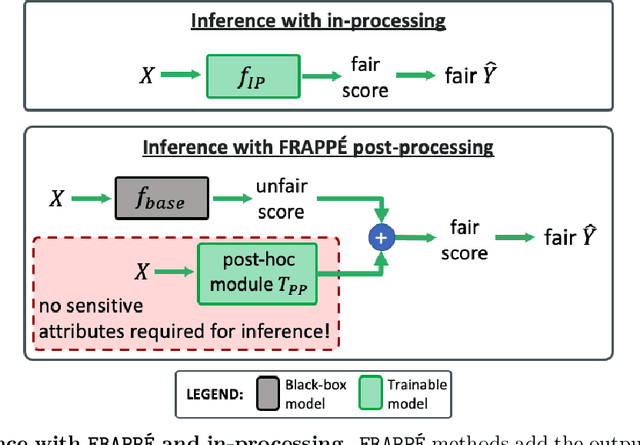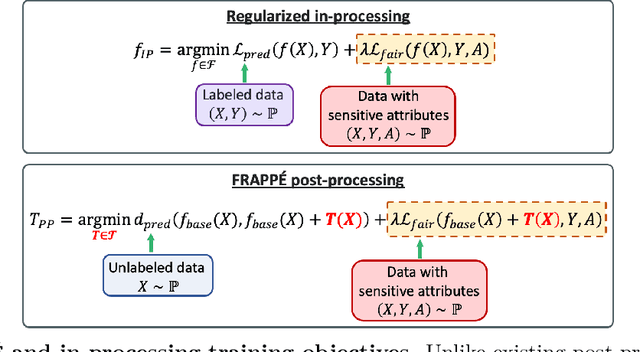FRAPPÉ: A Post-Processing Framework for Group Fairness Regularization
Paper and Code
Dec 05, 2023



Post-processing mitigation techniques for group fairness generally adjust the decision threshold of a base model in order to improve fairness. Methods in this family exhibit several advantages that make them appealing in practice: post-processing requires no access to the model training pipeline, is agnostic to the base model architecture, and offers a reduced computation cost compared to in-processing. Despite these benefits, existing methods face other challenges that limit their applicability: they require knowledge of the sensitive attributes at inference time and are oftentimes outperformed by in-processing. In this paper, we propose a general framework to transform any in-processing method with a penalized objective into a post-processing procedure. The resulting method is specifically designed to overcome the aforementioned shortcomings of prior post-processing approaches. Furthermore, we show theoretically and through extensive experiments on real-world data that the resulting post-processing method matches or even surpasses the fairness-error trade-off offered by the in-processing counterpart.
 Add to Chrome
Add to Chrome Add to Firefox
Add to Firefox Add to Edge
Add to Edge